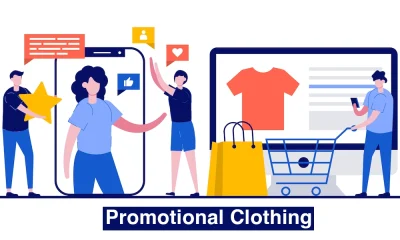Marketing
Scale Your Business With a Supercharged SEO Campaign

The Internet is not the friendliest place to generate traffic and be seen.
There are thousands of companies in your niche. They’ll never find you if you don’t have a good SEO campaign.
The online shopping market is a harsh world, especially since consumers have more choices than they can imagine. If you want your product to be among those they consider, you must work on your SEO campaign.
Companies with successful SEO campaigns pop up first on search engines.
They then get the most clicks since consumers do not want to search through Google listings pages.
The average consumer will only click on links on the first page. If your business or blog isn’t listed on the first page, you’re missing out big time on views. Your goal for a successful SEO campaign is to get on that first page, your company and revenue growth will follow.
Don’t worry if you don’t know what SEO is or have heard of it but don’t know how to apply it, don’t worry. We’ve written an SEO introduction and how to use its components to scale your business.
What is SEO?
Unless you work for a search engine company or within the SEO market, you probably have never thought much about how Google chooses which links it puts. SEO is how pages get ranked on search engines.
SEO stands for Search Engine Optimization, and is very complex and ever-changing. To understand SEO, you need to know how search engines work. Think of significant search engines as a scanner.
They scan every page so that they know what is on it. After it’s observed, the search engines organize those pages into categories based on keywords. The way they pick those keywords depends on what their users search for.
Once they know what a page says and who it will eventually help, the engines assess the site’s worth to its readers. Sites that it deems worthy or helpful will get ranked first. Those sites are the best match to what the user searched for.
It is deemed worthy when sites have the same types of keywords or match the same amount to a search is where things get complicated. The search engines play favorites to websites that know how to play the game.
By the end of this article, you will know the rules and be able to enter your website into the game.
SEO Campaign Components
Before entering the SEO game, you need to know three components of SEO strategy. You can do other things to increase your chances of being an MVP, but you need these three building blocks to qualify.
Keywords
There are two types of SEO keywords. Short keywords and long-tail keywords. Your site needs both types to be successful. Both keywords help the search engines categorize your website for future searches.
Short/Normal Keywords
These are the types of keywords that you are probably already thinking about. They’re descriptive of what you do within your industry. For example, if you had a pool company, the short-tail keywords you would want would be “pools, custom pools, pool maintenance.”
However, getting those keywords would be almost impossible due to existing competition. Only the first ten results on the search engine count for SEO purposes. At all.
Those are the ones that customers will consider. If they don’t find what they’re looking for on the first page, they’re much more likely to change their search terms than go to the next listings page.
Companies know this. That’s why it’s so hard to get those keywords that would be the most straightforward choices for your business niche. Everyone in your industry is competing for ten spots.
Thankfully, there aren’t just ten spots per industry; there are ten spots per keyword. There are lots of ways to help your site score one of those spots, and one of them would be to work with SEO experts to get your on-page and off-page SEO aligned with the latest Google guidelines using available tools like Google Search Console.
Long Tail Keywords
Long-tail keywords get less traffic than short tail, but their traffic is much more specific and targeted. If we stick with our pool example, a long-tail keyword for your business would be “locally owned pool company in Los Angeles.”
Since we’ve reduced the market by location in this case, you could also target other identifiers like “saltwater pools” since there is less competition. Now, you only have to compete with your local/specific competitors — not the whole industry.
Keyword Strategies
It seems like listing your keywords as many times as possible per page would increase your chances in SEO rankings.
However, search engines see right through that. If they pick up on the fact that you’re using too many keywords in your SEO campaign, they will list you lower in their results.
Use your keywords naturally. Also, try to use about one per every 150 hundred words. Anything more than that is called keyword stuffing, and will hurt your rankings. Once you understand even a little bit about the SEO industry as an individual, you’ll notice keyword stuffing.
If people notice a site is stuffed, they automatically do not trust it as much. The brand didn’t do its research. It seems simple to not overdo it on keywords, but you’d be surprised how often it happens.
If you had two companies who were precisely the same in every way, it would be the difference between being ordered randomly and coming first. Using your keywords correctly in your SEO campaign is the first and most straightforward way to scale your business.
Linking
Links to and from your site are the third component of a sound SEO strategy. They are easier to control since you create content (as opposed to already made keywords.)
A site that uses links will link to other websites and back to its own site internally. When you link to other sites, they can be sources that help you create your content. They can also be other businesses that you trust or are working with.
In the language of a search engine, links are like those with extensive networks. If you needed something, you’d be more likely to ask someone with an extensive network if they knew someone who could help than someone who only knows a few people.
When other sites link to you and when you link to other sites, it grows your network, and you become more trustworthy.
You can buy services that will link to your site, and most of those are great, but there is a free way to do this.
Think about other businesses in your area related to your field of work. Whose “pool guy” would you want to be? The original company would like to be your “landscape guy” in exchange. You can do this on your website by linking out.
If you talk to other sites about this, you can most likely strike a deal where you work with them and don’t pay anything for them to link you as long as you do the same.
This is a strong SEO campaign strategy for local businesses and for companies that have particular niches, like in the tech industry.
SEO Campaign Trends
As we mentioned before, how search engines decide to rank pages changes quickly — and sometimes without notice. Once you’ve concreted your linking and keyword strategy, it’s worth the work to play into these trends.
Lately, video content or images have been significant for SEO ranking. Why? Because it creates links to you. If all goes well and you make a viral video, your connection will be shared each time the post does.
The search engines see you getting more and more trustworthy with each share.
Another trend in SEO is to engage with your customers instead of getting them to engage with you. The consumer is much more likely to be interested in you if you show interest in them.
This doesn’t have to be complex conversations. If a customer says something nice, thank them and make them feel special. Give them something to talk about, which translates to them eventually linking to your services.
Some companies use Instagram as a way of finding new customers. They research who likes things in their industry and follow them or like their posts. Generally, likes come from familiar people. This will spike their curiosity.
Campaign planning is challenging since you never know what the search engines will do.
The best you can do is have a solid foundation for your SEO strategy, and pay attention to trends, but that’s easier said than done unless you’re using the experts.
We know that SEO is not ‘set and forget’ and that its requirement is kept alive by the search engines changing their algorithms. See this article here on RankBrain .






